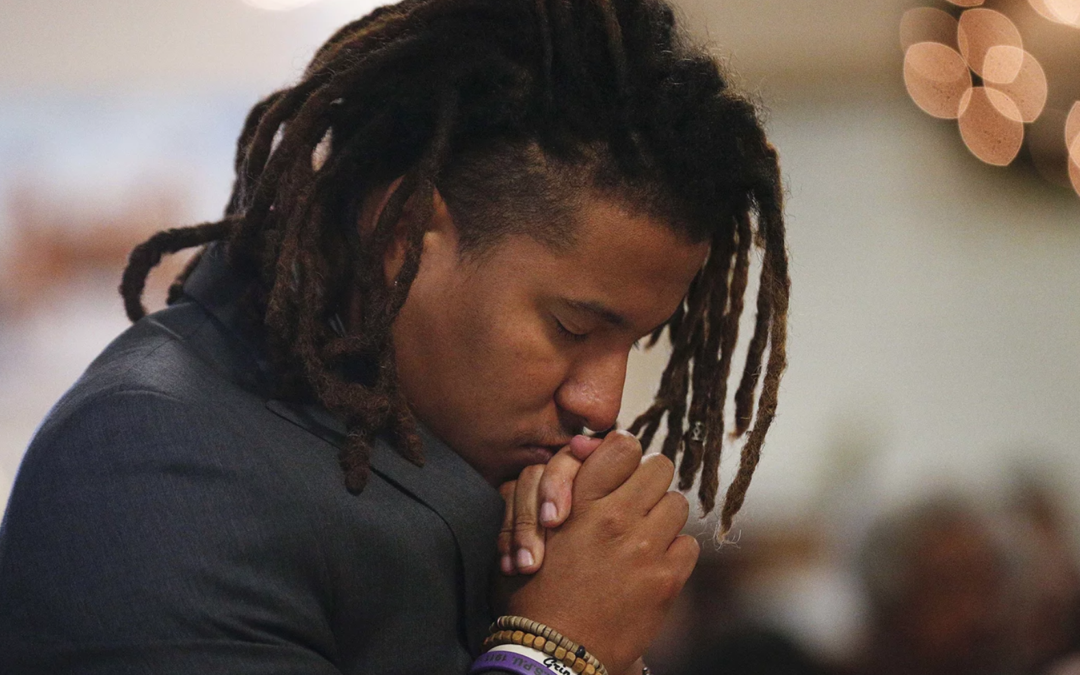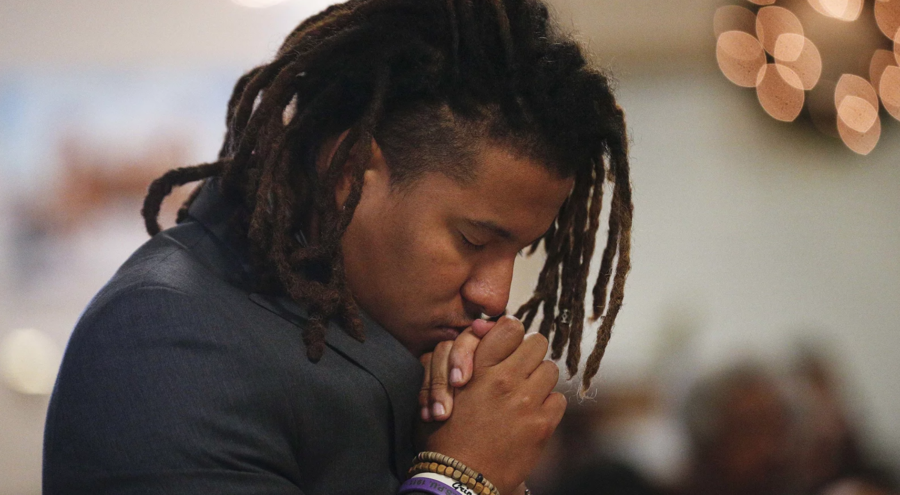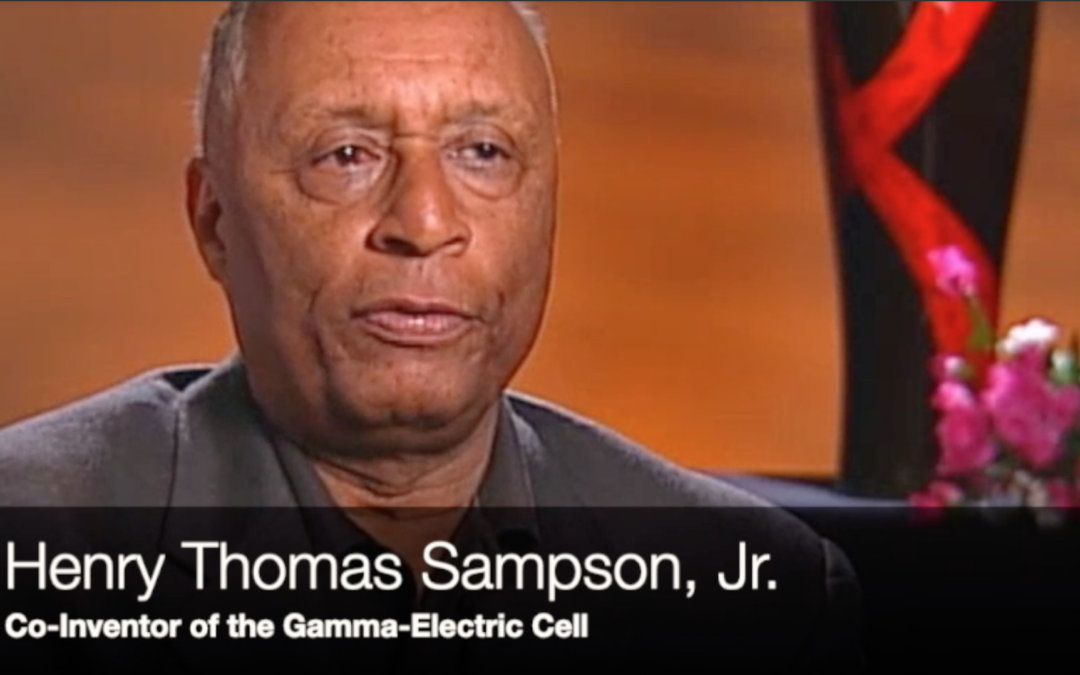
Survey: Black Millennials and the Church




Spike Lee won his first Oscar for Best Adapted Screenplay for “BlacKkKlansman.” (Photo by Jordan Strauss/Invision/AP)
Regina King wins for best performance by an actress in a supporting role for “If Beale Street Could Talk.” (Photo by Jordan Strauss/Invision/AP)
Mahershala Ali accepted the award for best performance by an actor in a supporting role for “Green Book.” (Photo by Chris Pizzello/Invision/AP)

In his book, Red, Yellow, Brown, Black, White—Who’s More Precious in God’s Sight: A Call for Diversity in Christian Missions and Ministry, Leroy Barber exposes the virtual absence of people of color in the mission field that threatens to compromise relationships with the people those organizations claim to serve. For more than twenty-five years Barber has led ministries serving the ones God loves: most recently as the Executive Director of Mission Year, a year-long urban ministry program focused on Christian service and discipleship, and now as the Global Executive Director of Word Made Flesh, an international organization that works among the most vulnerable of the world’s poor. Barber, who is a trusted voice across a breadth of cultures, spoke with UrbanFaith contributor Margot Starbuck about his book, his ministry, and the challenges of sometimes being the only person of color in mission-based ministry.
What from your experience in ministry caused you to write this book?
I guess, on a personal level, I am tired of being the only person of color in many of my ministry circles: Christian colleges where I speak a lot and teach a lot, also, conferences, and a lot of evangelical circles where folks are doing missions, there are few people of color around.
Selfishly that might be some of the motivation for the book.
I was going to ask about the challenges that you see among your colleagues who are men and women of color leading missional ministries, but now I’m wondering: Are they there leading?
The answer is yes, they are there, but not in mass numbers. The ones in leadership experience what I have for the last twenty-five years. It can be an experience of feeling like you’re the only one and that you’re expected to speak for people of color, to represent the perspective of people of color or your race. I am finding now that a number of churches are hiring a person of color on their staff because they think they “should.” And that person of color finds himself pretty lonely and always kind of speaking on the issue of diversity and race alone.
Today and for the last several decades, there has been an appeal, to many white evangelical college students, about living and working in an urban context. What is the risk of an all-white staff working in a more diverse urban area? How does it impact the ministry?
You are going to have more resources given to the ministry when staff is part of the white community. No matter how young the population of whites is, they are going to have some resources that automatically puts them in a position of power in many places, especially in struggling communities that don’t have resources. They’re able to host a kid’s club or after school program or a dance or whatever. But people want that for their kids.
A black friend of mine in a predominantly white campus ministry doesn’t have the same kinds of natural access to donors who have a vision for campus ministry as some of her white counterparts. What is your experience as a person of color relating to donors and fundraising?
I would say there are two aspects to that.
For starters, you don’t have a network of people with the resources to help you feed your family and pay your bills. So it can be extra stressful for that person of color. You’re invited to come do the ministry but you’re worried about your family eating and the money that needs to come in. That’s an extra tax. The burden of fundraising affects the person in ministry with fewer resources: it impacts how they’re thinking creatively about the ministry and the people around them—because they’re constantly having to worry about their funding. It takes away from their work.
The second part of wanting for resources is that it, unfortunately, makes people doubt their call. Should I be here? Should I be doing this? Because they lack resources. Financial lack serves to deny people’s call.
Are you describing the person on the ground who is running the kid’s club or are you describing the person at the top of the organizing or both?
Both. I am describing lived reality. A lot of times my creativity is stifled as a leader because I’m concerned about financial burdens as a person of color. But it’s the person on the ground as well. I have gone months without paychecks and that is also a reality for a lot of people on the ground. They do it and do it for literally nothing.
Is it hard to recruit younger people of color to work in ministries where you have to do this kind of fundraising?
Yes. It is hard to recruit because of the fundraising. A lot of times these organizations and communities are not culturally friendly enough. It is hard to find funding and one of the reasons is because of not understanding the different cultures among people.
I assume you mean historically white organizations. You are saying the organizations aren’t culturally friendly?
Right, they are not understanding. I was a missionary for a very long time in a predominantly white-culture organization: in its worship, and in the books they were reading, and the language that was used, and things like that. A person of color has to decipher some of those cultural practices.
Do you see any movement toward people of color leading organizations that are already serving primarily people of color?
Yes. I think in the last several years there has been an acknowledgment that we need to be more diverse, especially racially, and people are interested in hiring culturally diverse leaders. I do see organizations taking steps to hire people of color, that’s a first step. The challenge then is adapting an organization culturally and changing a system of funding. Leaders of color can lead as leaders of color and not leading as persons of color who are trying to conform to white culture. I’ll explain.
I am a person of color. I come into leadership, but I am expected to lead it the way it is and not bring in my cultural perspective or understanding into the mix. That is a whole different conversation. We need to be asking what does it truly mean to have a multiethnic and multicultural organization.
So how do you help people in the institution get there?
That is the big question.
A first step is hiring and making sure you at least have a diverse staff, but achieving authentic multiculturalism within your organization means an openness on the part of your leaders to learn. Quite frankly, it is difficult for established leaders to consider changing when they see that the organization is currently “successful.” They ask, “Why would we change this for diversity’s sake? Why would we change just so that we can have other people in the mix? Things are going so well.” That is a real challenge for people to get their heads around. They think, “It is going (well) why would we attempt something that feels like it could threaten the success that we already have?”
And so what is the motivation to implement change?
You have to go back to what God has to say about it. The only reason people are willing to entertain change is when they become convinced that this is closer to the kingdom and closer to God’s heart.
Check out Barber’s book, now available:

Courtesy of CNN
Few people have heard of Conetoe, North Carolina (pop. 287). Fewer know how to pronounce it correctly (kuh-NEE-tuh). In Conetoe, however, we can learn much from a pastor and congregation that decided to combine faith and farming to save bodies, minds, and souls. Rev. Richard Joyner, one of thirteen siblings born into a sharecropping family, experienced a moral epiphany when he officiated more than 30 funerals of congregants under 32 years of age in one year. So many of his members died needless, health-related deaths. Joyner lamented, “It just started to feel unconscionable that you would see someone 100 pounds overweight on Sunday and not say anything about it. Then they’d die of a heart attack.” No longer could he ignore the plight of his church members dying because of poor health choices and poor health options.
Conetoe is situated in Edgecombe County, North Carolina. Edgecombe has the highest rate of diabetes of North Carolina’s 100 counties. Conetoe was a food desert. Fresh, affordable produce was hard to come by. Church and community members suffered from high unemployment, obesity, low education, poverty and poor health. Joyner knew that farming could help the people’s health by providing physical exercise and fresh, affordable produce. Joyner had the agricultural know-how, but memories from his sharecropping past stood as a mental barrier he had to overcome.
Farming reminded him of working to benefit the man—farm owners who routinely underpaid and mistreated their workers. Farming reminded him of an endless cycle of poverty, with no personal benefit. Nevertheless, the dismal condition of his members convinced Joyner to overcome his personal concerns. Joyner chose to extend his ministry beyond the pulpit in 2005 by starting the Community Garden and Family Life Center, a summer program to grow nutritious food and get children physically active.
More than ten years later, the two-acre garden has grown to fifteen farm plots around Edgecombe County. Youth work the fields. Elders mentor the youth in farming and academics. The produce from the farm generates income used for school supplies and scholarships to further the youths’ education. Faith and farming are transforming this rural South Carolina community.
Courtesy of Own
Meanwhile, in Milwaukee, Wisconsin, a lay person named Will Allen was showing young people how to do urban farming. Allen, also the son of a sharecropper, returned to farming after a successful career in professional basketball and corporate sales and marketing. While living in Belgium, Allen learned intensive farming methods used to increase yields on small plots. Years later, Allen applied that knowledge to create Growing Power, Inc., a non-profit center for urban agriculture training and building community food security systems.
Before creating Growing Power, Inc., Allen was content to simply farm his three-acre plot located on Milwaukee’s north side and provide nutritious food for people living nearby. Things changed, however, when young people in the neighborhood began asking him questions. They sought his advice on growing produce in their gardens. The youths’ eagerness to learn inspired Allen to mentor them. Eventually, Allen created Youth Corps, a year-round youth development program that teaches community food system development and maintenance.
Through his innovative methods of using composting, vermicomposting (using worms to fertilize compost), and aquaponics (growing fish and food plants in a closed system), Allen’s urban farming organization provides intergenerational education, nutrition, and fellowship particularly for low-income and immigrant peoples in the United States and various countries in Africa, Eastern Europe, and Haiti. His three-acre urban farm alone, located six blocks from Milwaukee’s largest public housing complex, feeds 10,000 people.
In an interview, Allen remarked, “I feel that farming is my calling. I think I was meant to do this. To be a farmer you have to have tremendous faith and trust that something good is going to come.”
Joyner and Allen represent a groundswell of clergy and laypersons who are rediscovering the importance of responding to one’s call to work. Work as a calling compels us to discern how our work is our Christian vocation. Faith and work, the two should be mutual partners. Faith should inform work; work should be an extension of faith. Our expression of Christianity should be seen in all we say and do; yet, how often in church do we talk about faith and work? This essay was taken from our 2016 Adult Vacation Bible School, Getting Work Right. Do you need a job? Are you dissatisfied with a job? Do you know how your job fits into God’s eternal plan and purpose? Take our free career self-inventory at gettingworkright.com to start the journey toward getting work right!
“Fresh, affordable produce was hard to come by”